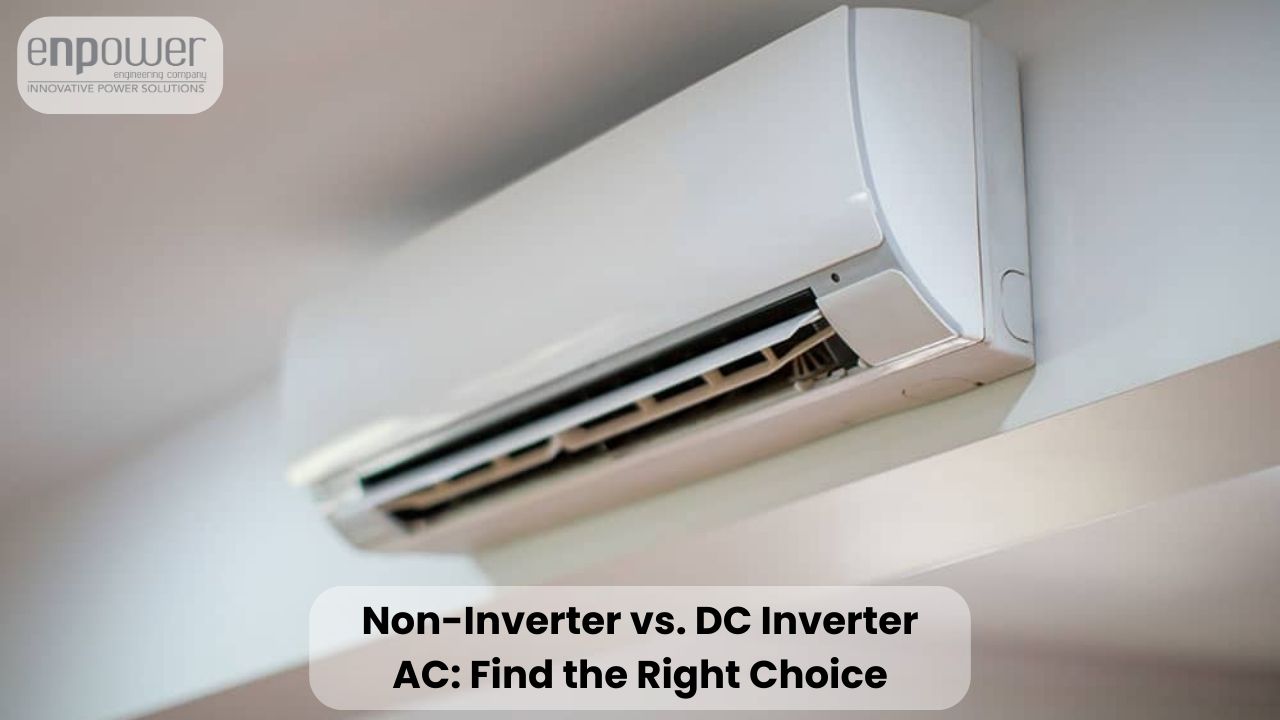Choosing the right air conditioner can save you money on electricity bills and ensure comfort throughout Pakistan’s hot summers. This guide compares Non-Inverter ACs and DC Inverter ACs in detail, helping you make an informed decision for your home or office.
What is a Non-Inverter AC?
A Non-Inverter AC operates at a fixed compressor speed. Once turned on, it runs at full power until the room reaches the set temperature and then stops.
Advantages:
Lower upfront cost
Simpler technology, easier maintenance
Suitable for rooms with intermittent AC use
Disadvantages in Pakistan:
Higher electricity consumption due to frequent compressor starts
Less energy-efficient for long daily usage
Slightly louder operation
What is a DC Inverter AC?
A DC Inverter AC adjusts the compressor speed according to the room’s temperature. Instead of stopping completely, it slows down to maintain a consistent temperature.
Advantages:
Energy-efficient — reduces electricity bills by 30–50% in Pakistan’s climate
Faster cooling and consistent comfort
Quieter operation
Longer lifespan due to less wear and tear
Disadvantages:
Higher initial cost
Slightly more complex maintenance
Non-Inverter vs DC Inverter AC – Key Differences
| Feature | Non-Inverter AC | DC Inverter AC |
|---|---|---|
| Compressor Operation | Fixed speed, stops & starts | Variable speed, continuous adjustment |
| Energy Efficiency | Low | High (30–50% savings in Pakistan) |
| Cooling Speed | Slower | Faster and consistent |
| Noise Level | Higher | Lower |
| Upfront Cost | Affordable | Higher |
| Maintenance | Simple | Slightly complex |
How Much Can You Save With an Inverter AC in Pakistan?
For example, using a 1.5 Ton AC in Lahore or Karachi:
Non-Inverter AC: ~5–6 hours/day → ~PKR 12,000/month electricity
DC Inverter AC: Same usage → ~PKR 7,000–8,000/month
Estimated saving: ~PKR 4,000–5,000/month
Note: Actual savings may vary depending on electricity tariff, room size, and usage patterns.
Which AC Should You Choose?
Choose Non-Inverter AC if:
You use AC only a few hours a day
Budget is tight
Simpler maintenance is preferred
Choose DC Inverter AC if:
You use AC for 6+ hours daily
You want long-term energy savings
Quieter operation and consistent comfort matter
Conclusion
Choosing between a Non-Inverter and DC Inverter AC depends on your daily usage, electricity budget, and comfort needs. For long-term energy savings and consistent cooling in Pakistan, DC Inverter ACs are the better choice, while Non-Inverter ACs remain a cost-effective option for occasional use.
Frequently Asked Questions
Do inverter ACs really save electricity in Pakistan?
Yes, inverter ACs adjust compressor speed to maintain temperature efficiently. In Pakistan’s long summers, they can reduce electricity bills by up to 50%.
Are inverter ACs more expensive to maintain?
Slightly, but the energy savings usually offset maintenance costs over time.
Is a non-inverter AC suitable for small rooms?
Yes, for small rooms or occasional use, non-inverter ACs can be a budget-friendly choice.
How long do inverter ACs last in Pakistan?
With proper maintenance, inverter ACs can last 10–15 years, even in Pakistan’s high temperatures.
Do I need a stabilizer for inverter AC in Pakistan?
Most modern inverter ACs work with built-in voltage stabilizers, but using an external stabilizer in areas with frequent voltage fluctuations is recommended.


